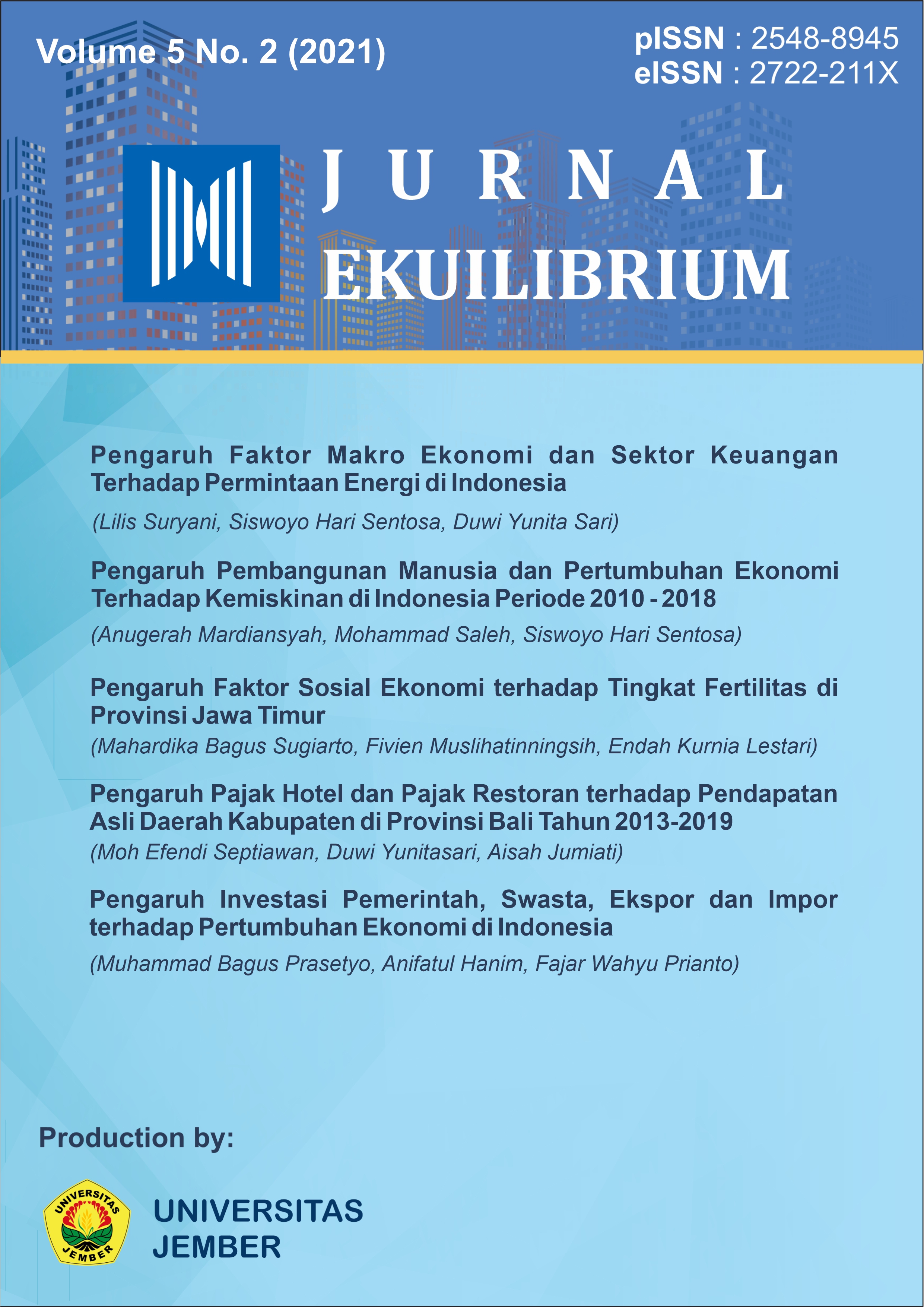Pengaruh Faktor Makro Ekonomi dan Sektor Keuangan terhadap Permintaan Energi di Indonesia
Abstract
Economic globalization has an impact on energy consumption caused by the macroeconomic sector and the financial sector. Macroeconomic indicators used in this study include GDP and FDI. GDP per capita is the level of annual income per capita based on a constant aggregate local currency based on a constant USD in 2010. FDI is net investment inflows consisting of total equity capital, reinvestment income, other long-term capital, and short-term capital as shown on the balance of payments. Whereas in the financial sector, the ratio of the amount outstanding is the total amount of money in the hands of the public and circulates in an economy to GDP. The trade stock ratio is the total shares traded on the stock exchange. Energy is the most important thing in the country's economy. The availability of energy must be sustainable to avoid an energy crisis in the future, it is necessary to have energy policies to regulate energy consumption. The method used to analyze the link to energy consumption in Indonesia is Ordinary Least Square (OLS) with time-series data from 1988-2017. The analysis shows that GDP and the ratio of the money supply have a significant influence on energy consumption in Indonesia, while FDI and the trade stock ratio do not have a positive and significant effect on energy consumption in Indonesia.

This work is licensed under a Creative Commons Attribution 4.0 International License.
Authors who submit their manuscripts to be processed for publication at JEK should agree with following points:
1. The author cannot withdraw the manuscript that has been proposed for processing until it receives an answer from the Chief Editor regarding the status of the scientific article manuscript (accepted or rejected for publication).
2. The publisher is not responsible for plagiarism cases for articles published on JEK.
3. The publisher is not responsible for the data and content of articles published on JEK, and is entirely the responsibility of the author.
4. Authors whose articles are published on JEK agree to the following CC-BY license.

JEK by University of Jember is licensed under a Creative Commons Attribution-NonCommercial 4.0 International License.




